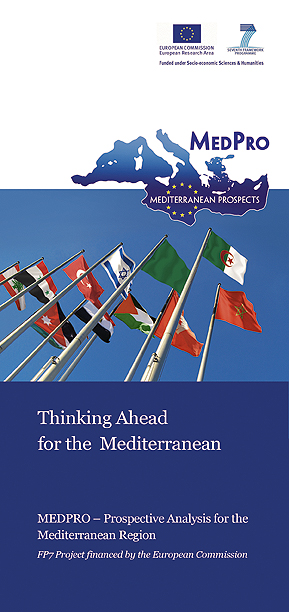- التنسيق العلمي
- الجوغرافية السياسية وحكومة
- الديموغرافيا، والصحة، والشيخوخة
- إدارة البيئة والموارد الطبيعية
- الطاقة، والتخفيف من حدة تغير المناخ
- التكامل الاقتصادي، والتجارة، والاستثمار، والتحليل القطاعي
- الخدمات المالية وسوق رأس المال
- رأس المال البشري، والحماية الاجتماعية، وعدم المساواة والهجرة
- وضع السيناريوهات وتقييم الأثر
- سيناريوهات التكامل الإقليمي والتعاون مع الاتحاد الأوروبي
Convergence and Integration of Banking Sector Regulations in the Euro-Mediterranean area
جمعة, 22/03/2013 - 10:21 | by admin
This analysis of regulatory convergence shows that substantial improvements have been made in the southern and eastern Mediterranean countries (SEMCs), yet they still suffer from key weaknesses in deposit insurance, entry obstacles, political interference and the strength of legal rights. In particular, deposit insurance systems in many SEMCs are not explicit, which could lead to uncertainties in the provision of support to banks in case of default. Moreover, most systems do not attempt to align the banks’ incentives in risk-taking with those of taxpayers by implementing risk-based premiums. Another persistent issue is the presence of entry obstacles, with signs of substantial barriers to entry and continued government ownership of banks. The comparison of regulatory systems also highlights that some SEMCs have barely been able to catch up with the strong increase in supervisory independence in EU Mediterranean countries in recent years. While creditor protection remains relatively weak, significant improvements in credit information have occurred since 2003, notably through the establishment of private credit bureaus with universal coverage.
Rym Ayadi is Senior Research Fellow at the Centre for European Policy Studies (CEPS) in Brussels and Coordinator of the MEDPRO project, Emrah Arbak was Researcher at CEPS and Willem Pieter De Groen is Researcher at CEPS.
| المرفق | الحجم | الطلبات | Last download |
|---|---|---|---|
| MEDPRO TR No 34 WP6 Ayadi.pdf | 384.88 ك.بايت | 1226 | منذ ساعتين 19 دقيقة |
تاريخ المطبوعة:
Tue, 19/03/2013
المؤسسة: CEPS








